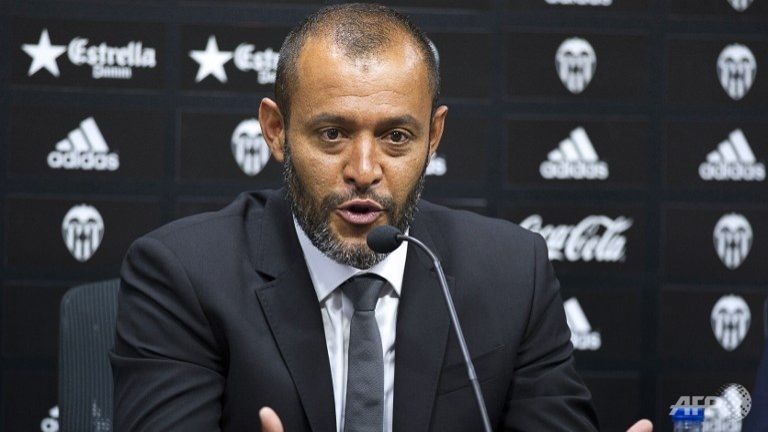DEAL DONE: Manager Nuno Espírito Santo Retires After Southampton

In a stunning announcement that has sent ripples through the world of football, Nuno Espírito Santo has confirmed his retirement from management following his time with Southampton. After years of overseeing clubs across Europe, the former Wolves and Tottenham Hotspur manager has made the difficult decision to step away from the touchline, ending a remarkable career that has seen him take charge of multiple high-profile clubs.
This news marks the end of an era for Nuno, who has long been known for his tactical acumen, ability to build cohesive teams, and disciplined approach to football. His decision to retire has come as a surprise to many, especially considering the relatively short tenure he had at Southampton, but for those who know Nuno, his choice seems consistent with his personality — thoughtful, deliberate, and focused on personal growth.
Nuno Espírito Santo: A Career in Management
Nuno’s coaching career began in Portugal, where he first made a name for himself as the manager of FC Porto’s B team before taking the reins of Rio Ave. It was here that he earned widespread recognition for his tactical nous, which ultimately led to his appointment at Wolverhampton Wanderers in 2017.
At Wolves, Nuno’s impact was immediate. He transformed the club into one of the Premier League’s most competitive teams, employing a disciplined 3-4-3 formation that brought structure and defensive solidity while also allowing his players to express themselves in attack. Under his leadership, Wolves rose from the Championship to establish themselves as a Premier League fixture and even competed in European football.
Nuno’s success at Wolves led to a high-profile move to Tottenham Hotspur in 2021, although his time in North London was shorter than many had anticipated. Despite some early promise, Nuno’s tenure at Spurs was marked by inconsistency, and he was replaced after just a few months. However, his reputation as a coach remained intact, and Southampton quickly snapped him up in an attempt to bring stability to their club in the Premier League.
The Southampton Chapter
Nuno’s stint at Southampton was much more restrained compared to his time at Wolves. When he joined the Saints, the club was reeling from several seasons of underperformance and managerial changes. Nuno’s first task was to stabilize the squad and create a competitive, organized unit capable of climbing the Premier League standings. While the results were somewhat mixed, his presence was undeniably felt, and there were glimpses of the organized, disciplined football that defined his previous successes.
However, after a season filled with challenges — including injuries, squad rotation issues, and an inconsistent run of results — Nuno made the decision to step down from his managerial position. In his farewell message to the club, he expressed gratitude for the opportunity to manage Southampton but emphasized that he had reached a point in his career where stepping away was the right choice.
“Football has been my life, and the privilege of managing such wonderful clubs has been a constant source of joy and pride,” Nuno said. “At Southampton, we had some tough times, but we also had moments that made me incredibly proud. However, after much reflection, I’ve come to the conclusion that it’s time for me to retire from management. I’ve given everything I could to this profession, and now it’s time to step away.”
A Tactical Mastermind and Leader
Throughout his career, Nuno was known for his tactical intelligence, versatility, and ability to motivate his players. His preferred style of football was often pragmatic, with a focus on defensive solidity and structured counter-attacking play. But beyond tactics, Nuno was praised for his leadership and ability to instill discipline within his squads. His calm demeanor and focus on building strong team morale made him a respected figure in the dressing room.
While Nuno may not have achieved the trophy-laden success that some of his managerial peers have enjoyed, his influence on the teams he managed was undeniable. His legacy includes not just the tactics he employed but also the strong team ethos he fostered, which will remain a hallmark of his career.
Reflecting on His Legacy
As news of Nuno’s retirement spreads, many in the football community are taking a moment to reflect on his contributions to the sport. His ability to nurture young talent, adapt to different environments, and manage with dignity and professionalism have earned him widespread respect. Even though his time at Southampton was relatively short, the lessons he imparted to the players and staff will undoubtedly leave a lasting impact.
Former players have expressed their gratitude for his leadership, with several taking to social media to thank him for his guidance and wisdom. “Working with Nuno was a privilege,” said a former Southampton player. “He always had the team’s best interests at heart, and he made us believe we could compete with anyone. I’ve learned so much from him.”
Nuno’s departure from management may come as a surprise, but it is clear that he leaves behind a legacy of integrity, intelligence, and resilience. As he steps away from the touchline, the football world will undoubtedly miss his strategic insights, but his influence on the game will remain felt for years to come.
What’s Next for Nuno?
While Nuno Espírito Santo’s immediate plans following retirement are not yet clear, there are whispers that he could remain involved in football in some capacity, perhaps through mentoring or coaching education. Given his wealth of experience and tactical knowledge, it’s possible that he could continue to contribute to the sport in a behind-the-scenes role.
For now, though, Nuno’s retirement marks the end of an era for one of football’s most respected managers. The game will undoubtedly miss his unique style and leadership, but his influence will live on through the players and teams he helped shape throughout his career.
Leave a Reply